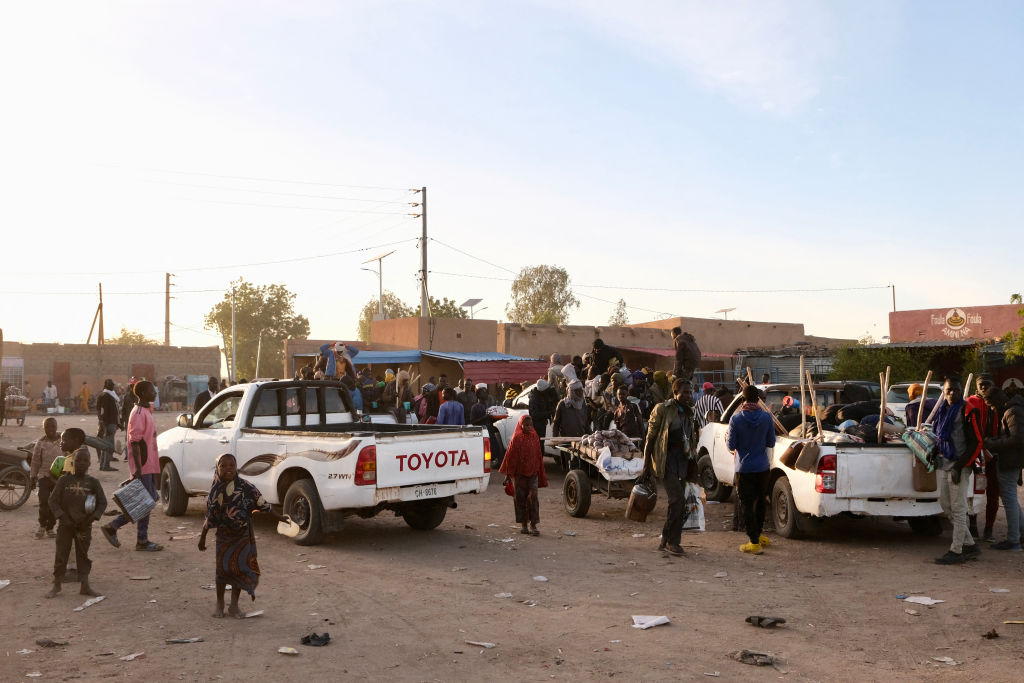Across Africa, so-called “ungoverned spaces” serve as breeding grounds for terrorist organizations as well as transit points for weapons, drugs and other contraband. Increasing government presence in such spaces is a vital part of counterterrorism planning, according to experts.
“It’s different in every region or country, but there are some similarities,” Lt. Gen. Kayanja Muhanga, commander of land forces of the Uganda Peoples’ Defence Force, said during the recent African Chiefs of Defense Conference in Nairobi, Kenya. “Terrorists take advantage of ungoverned spaces.”
Ungoverned spaces can be anywhere, but they are most often found in border regions far from the central government. A lack of public infrastructure can make it difficult for security forces to access those areas to enforce the law and to regulate traffic across often-porous borders. The lack of government services and security also feeds resentment among local residents and can push many to rely on insurgent groups for law enforcement and justice system services.
In the Sahel, for example, Jama’at Nusrat al-Islam wal-Muslimin (JNIM) has filled the government service void across wide swathes of Burkina Faso and Mali. Terrorist groups use the sense of insecurity to recruit new members from the young people living in those ungoverned spaces, Muhanga said.
An analysis of data from the Uppsala Conflict Data Program shows that, from northern Burkina Faso to the eastern Democratic Republic of the Congo to central Somalia, most of the violence across the continent happens in regions where national governments have little to no practical authority, according to Nigerian Armed Forces Maj. Chinedu Chikwe.
“Establishing state institutions in such ungoverned spaces would ensure government control and encourage economic activities in those areas,” Chikwe wrote in a study published in the InterAgency Journal in 2024. “In addition, the presence of government institutions would ensure that the rule of law is maintained.”
In the absence of a functional government, terrorist groups have, in effect, become the government in those regions, imposing their own form of taxation on the locals along with draconian interpretations of Islamic law.
In Somalia, where Ugandan troops serve with an African Union peacekeeping mission, al-Shabaab has become a kind of government-in-waiting, Muhanga said.
“Al-Shabaab of today is not the al-Shabaab of the past,” Muhanga said. “They have a new face. They build mosques. They collect taxes.”
In northern Nigeria, ungoverned spaces in Borno, Kaduna and Zamfara states have become havens for terrorists operating in neighboring countries, such as Niger and Chad. Working from its base in Borno State’s Sambisa Forest, Boko Haram exploited porous borders to contribute directly or indirectly to the deaths of more than 350,000 people across the region, according to a study by the United Nations Development Programme.
“The group has taken advantage of weak state control of the borders between Niger and Nigeria to move fighters and weapons,” researchers Ernest Aniche, Chris Nshimbi and Inocent Moyo wrote in The Conversation.
Boosting border security in ungoverned places like Borno State “would ensure that border areas are not left ungoverned, thereby curbing insurgent activities,” Chikwe wrote.
As a counterterrorism tool in governed spaces, border security requires the countries on either side of the border to share information and collaborate on enforcement, Muhanga said.
“This is the time when African countries should develop joint strategies to counter terrorism,” he said.

